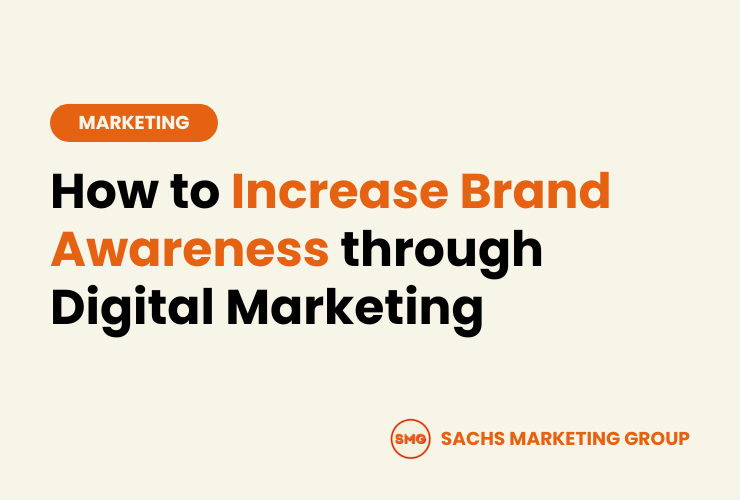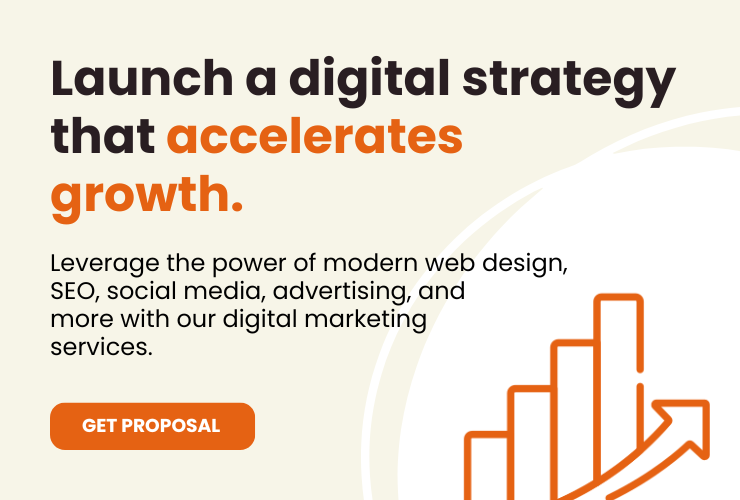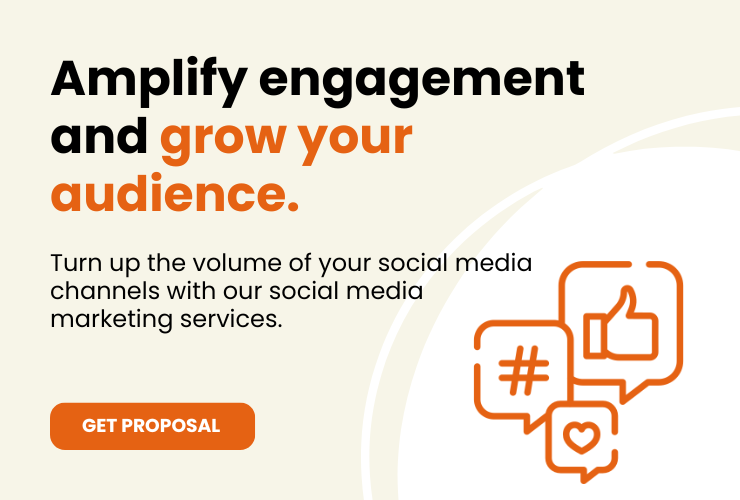To increase brand awareness through digital marketing, create engaging content that resonates with your audience. Utilize social media platforms to connect and share, invest in targeted ads to reach specific groups, optimize your website for search engines, and encourage customer reviews to build trust. Partnerships with influencers can also amplify your brand’s reach effectively.
In today’s fast-paced digital world, businesses often struggle to make their brand stand out amongst the sea of competitors. Building and maintaining brand awareness is challenging, especially when consumers are constantly bombarded with information. A lack of brand awareness can lead to missed opportunities, lower customer loyalty, and ultimately a decline in revenue.
Even the best products can get lost in the crowd without brand awareness. People tend to gravitate toward brands they recognize and trust. If your brand isn’t prominent in their minds, they’ll likely choose a competitor.
Digital marketing is the knight in shining armor for increasing brand awareness. By utilizing strategies like search engine optimization (SEO), pay-per-click (PPC) advertising, and social media marketing, you can reach a larger audience and make a lasting impression. Not only will this boost your brand’s visibility, but it will also build credibility and trust among consumers.
In this article, you will learn how to use digital marketing to increase brand awareness for your company.
Overview
What is Brand Awareness?
Brand awareness refers to the extent to which consumers recognize and recall a particular brand among others in the market. It represents the familiarity consumers have with a brand’s unique attributes, products, or services. High brand awareness can lead to a brand being top-of-mind when a customer is considering a purchase within that product category.
What Is Brand Awareness in Digital Marketing?
Brand awareness in digital marketing refers to the extent to which consumers are able to recognize or recall a brand within the digital space. It’s about creating a distinct online presence through various channels such as social media, search engines, and email marketing so that the brand stays at the top of consumers’ minds and is easily associated with particular products or services. This awareness is crucial for attracting and retaining customers.
How to Increase Brand Awareness through Digital Marketing
Digital marketing provides an array of tools to increase brand awareness. By leveraging tactics such as SEO, content marketing, social media campaigns, and PPC advertising, businesses can reach a wider audience, consistently share their unique value proposition, and create meaningful engagements. Furthermore, through thoughtful web design, businesses can create memorable experiences, strengthening brand recall among customers.
When it comes to using digital marketing to increase brand awareness, it’s essential to recognize the power of leveraging multiple channels.
The online world is vast, and your potential customers are likely spread across various platforms. By adopting a multi-channel approach, including social media, email marketing, content marketing, and SEO, you can reach a wider audience and make a more significant impact.
Each channel offers unique opportunities for engagement and can be used to convey different aspects of your brand personality. For instance, social media can be used for informal interactions and building a community, while email marketing can be employed for personalized offers and newsletters.
Enhancing brand awareness is not just about increasing your brand’s visibility – it’s about making a lasting impression.
Here’s how to use digital marketing to enhance brand awareness:
SEO – Be the Brand People Find in Search Engines
Search Engine Optimization (SEO) plays a pivotal role in enhancing brand awareness by increasing a brand’s visibility to a targeted audience.
When a brand is optimized for search engines, it becomes more likely that people searching for relevant keywords will come across the brand’s website or content. This consistent exposure can foster familiarity among potential customers.
Beyond visibility, SEO also emphasizes providing valuable and relevant content.
When users find helpful information through a brand’s content, it positions the brand as an authority and a go-to resource in its industry. This authoritative stance not only amplifies recognition but also builds trust and credibility with the audience.
Furthermore, SEO often involves optimizing for local searches and ensuring a mobile-friendly experience, which means that the brand isn’t just visible, but it’s reaching the audience at the right place and time, increasing the chances of converting awareness into action.
Essentially, through strategic optimization for search engines, SEO cultivates a pathway for a brand to consistently reach its target audience, build a positive reputation, and become a familiar and trusted name.
PPC Advertising – Be the Brand People See Again and Again
Pay-Per-Click (PPC) advertising can play a pivotal role in enhancing brand awareness. When executed correctly, PPC campaigns allow brands to appear prominently in search results and other platforms, ensuring that they capture the attention of potential customers.
One of the greatest benefits of PPC is that it provides immediate visibility. Unlike SEO, which takes time to build, as soon as you launch a PPC campaign, your ads can begin to appear in prominent positions in search results or on social media. This is particularly beneficial for new brands that haven’t yet established organic search visibility or for established brands looking to promote a new product or service.
PPC campaigns allow you to target specific demographics and keywords, ensuring that your brand is seen by the most relevant audience. For instance, you can target users based on location, interests, age, and more. This level of targeting allows your brand to gain exposure among individuals who are most likely to be interested in what you have to offer. Furthermore, keyword targeting ensures that your brand appears for searches that are most relevant to your products or services.
When people repeatedly see your ads as they browse the internet or search for keywords related to your industry, it increases brand recall. This means that, over time, people start associating certain keywords and products with your brand. Even if they don’t click on your ad immediately, the consistent visibility builds familiarity, and they are more likely to remember your brand when they need your product or service.
One of the advantages of PPC for brand awareness is the ability to measure its impact. Through the PPC platforms, you can monitor impressions, clicks, and conversions. High impressions indicate that your ad is being seen by a large audience, which is a direct measure of brand awareness. Monitoring these metrics can help you adjust your campaigns for maximum brand exposure.
Content Marketing – Be the Brand People Find Most Helpful
Content marketing is an incredibly powerful tool for enhancing brand awareness. Through the creation and sharing of valuable content, brands can establish themselves as thought leaders in their industry and build a strong connection with their audience.
This is key to standing out.
When customers see a company consistently providing content that is educational, entertaining, or solves their problems, they are more likely to recall that brand when they need the products or services it offers.
Additionally, content marketing allows for a more organic development of brand reputation. By producing high-quality content that genuinely helps or engages the audience, a brand can cultivate a positive image. This content, whether in the form of blogs, videos, podcasts, or social media posts, can be shared by satisfied consumers, extending the brand’s reach to new potential customers. This word-of-mouth marketing, which is highly trusted by consumers, increases brand awareness exponentially, as people tend to trust recommendations from friends and family.
Furthermore, content marketing supports and strengthens other digital marketing efforts. For example, sharing content on social media can lead to increased social reach and brand mentions.
When content is optimized for search engines (a practice known as SEO), it can improve the brand’s visibility in search results, leading to more organic traffic to the brand’s website.
By employing a strategic content marketing plan, businesses can ensure that they are not just promoting their products or services, but also building a brand that resonates with the values and interests of their target audience.
Social Media – Be the Brand People Remember as Interactive
Social media marketing is an indispensable tool for enhancing brand awareness in today’s digital era.
With billions of users actively engaging on platforms such as Facebook, Instagram, Twitter, and LinkedIn, social media offers a vast pool of potential customers. By creating and sharing content that resonates with your target audience, you can capture their attention and foster recognition and recall for your brand. Engaging content, coupled with a consistent posting schedule, can create a memorable brand presence that stands out in the crowded social media space.
In addition to content sharing, social media platforms offer an interactive medium for brands to connect with their audience. Through features like comments, likes, shares, and direct messaging, businesses can have two-way communication with their audience. This interaction allows for real-time feedback and insights into customer preferences and opinions. Building relationships through meaningful engagement not only increases brand loyalty but also encourages customers to become brand ambassadors by sharing and recommending the brand within their networks. This word-of-mouth marketing is particularly powerful in enhancing brand awareness.
Social media advertising is another significant aspect to consider. Targeted ad campaigns allow businesses to reach potential customers who might not be aware of their brand or products. Social media platforms offer sophisticated targeting options based on demographics, interests, behavior, and more. This level of specificity ensures that your ads are being shown to individuals who are most likely to be interested in your brand. By combining engaging content with a well-planned advertising strategy, social media marketing can significantly enhance brand awareness and facilitate long-term growth.
Email Marketing – Be the Brand People Hear from Regularly
Email marketing is an indispensable tool for companies looking to enhance brand awareness. By effectively utilizing email marketing, businesses can foster direct communication with their audience. This medium enables brands to stay on top of mind among their subscribers by regularly providing them with valuable content, updates, and offers. Moreover, as email is a more personal form of communication compared to other marketing channels, it helps in establishing a deeper connection with the audience.
One of the standout benefits of email marketing is its ability to be highly targeted and personalized. Through segmentation, brands can tailor their emails to cater to the specific interests and needs of different audience segments. This kind of personalization helps in delivering more relevant and engaging content to subscribers, thereby building a positive brand image. Additionally, the cost-effectiveness of email marketing makes it an attractive option for businesses of all sizes. With a relatively low investment, companies can reach a wide audience and make a lasting impression.
Besides the direct communication benefits, email marketing also supports other digital marketing channels. By incorporating links to social media pages, and promoting blog posts or videos within the email content, businesses can create a more comprehensive and unified online presence. This synergy among various channels reinforces brand identity and awareness.
Here’s how email marketing can enhance brand awareness:
- Personalized Content: Tailor content to address the specific interests and preferences of different audience segments.
- Regular Updates: Keep your audience informed about the latest products, services, and company news.
- Exclusive Offers: Provide special deals or promotions that make subscribers feel valued.
- Sharing Valuable Information: Send eBooks, whitepapers, or industry insights that can help establish your brand as an authority in your field.
- Visual Branding: Use consistent fonts, colors, and logos in your emails to reinforce your brand identity.
- Customer Feedback: Encourage subscribers to provide feedback, which can help improve products/services and foster community.
- Integration with Social Media: Include social sharing buttons in your emails to expand your reach and enhance brand visibility on multiple platforms.
- By strategically using email marketing, companies can create a constant and meaningful dialogue with their audience. This not only helps in retaining existing customers but also in attracting new ones, all while strengthening brand awareness and loyalty.
Web Design – Be the Brand with a Great Website
A professionally designed website is crucial in the digital age. Your website is likely the first point of contact for potential customers, so it’s important to make a good first impression.
A well-designed website that reflects a brand’s identity and values can create a lasting impression on visitors. Through consistent use of logos, colors, typography, and imagery that align with the brand, the website becomes an extension of the brand itself. This consistency in design elements not only creates a cohesive look but also reinforces brand recognition each time a visitor interacts with the website or other branded content.
In addition to aesthetic considerations, the usability and user experience (UX) aspects of web design are critical in building brand awareness. A user-friendly website that is easy to navigate and provides value to visitors fosters a positive perception of the brand. When visitors have a satisfying experience on a website, whether it’s finding information effortlessly or completing a transaction without hassles, they associate those positive experiences with the brand itself. This can lead to increased trust and loyalty, and visitors are more likely to recommend the brand to others, extending brand awareness through word of mouth.
Reputation Management – Be the Brand People Trust
Reputation management is instrumental in enhancing brand awareness by establishing credibility and trust among consumers.
People often turn to online reviews and social media to gauge the reliability and quality of a brand’s products or services. By actively managing your brand’s reputation, you can ensure that the image presented online reflects the values and quality that your brand stands for. A positive reputation encourages word-of-mouth marketing, as satisfied customers are more likely to recommend your brand to their network. This organic form of promotion is highly valued by consumers and significantly contributes to brand awareness.
No matter how vigilant a brand is, negative feedback or publicity is inevitable. Effective reputation management involves monitoring online platforms and addressing negative feedback in a constructive manner. This can include acknowledging mistakes, resolving issues, and communicating transparently with the public. When a brand actively works to recover from negative publicity, it shows consumers that the brand is accountable and committed to customer satisfaction. This responsiveness can transform a negative situation into an opportunity for demonstrating the brand’s values and commitment to its customers, thereby enhancing brand awareness in the process.
Reputation management also plays a crucial role in creating and maintaining a consistent brand image across various platforms. Consistency in branding, including tone of voice, visuals, and customer service, fosters familiarity among potential customers.
How to Measure Brand Awareness Online
Measuring brand awareness is essential for understanding the effectiveness of your marketing efforts and the current standing of your brand in the marketplace.
It’s not only about tracking numbers; it’s about comprehending the impact your brand has on the audience and adjusting strategies accordingly. Here, we will explore different aspects and tools involved in measuring brand awareness.
- Surveys and Polls: One way to gauge brand awareness is by directly asking your audience. You can conduct surveys and polls asking if they are familiar with your brand, where they heard about it, and what they associate with it. This can be done through email campaigns, social media, or tools like Google Forms and SurveyMonkey.
- Google Alerts and Mention Monitoring: Setting up Google Alerts for your brand name can help track online mentions. Similarly, tools like Mention or Brandwatch can monitor mentions across the web, including social media, which provides valuable data on how often people are talking about your brand.
- Website Analytics: Use Google Analytics or similar tools to monitor traffic to your website. Look at not just the number of visitors, but also where they are coming from. Increases in direct traffic (people typing your brand name into the browser) can be a good indicator of growing brand awareness. Traffic is a fundamental metric in measuring brand awareness. It refers to the number of visitors who land on your website. A surge in traffic can be indicative of your brand gaining popularity. It’s crucial to not only monitor the volume of traffic but also analyze the sources of this traffic. By understanding whether it’s coming from organic search, referrals, social media, or paid campaigns, you can tweak your strategies for even better results.
- Search Volume Data: Utilize tools like Google Trends to see how often people are searching for your brand or terms associated with it. Increases in search volume for your brand name can indicate growing awareness.
- Social Media Metrics: Social media platforms are vital for brand awareness. Monitor metrics like followers, likes, shares, and comments. A growing following and increased engagement can indicate increasing brand awareness. Tools like Hootsuite and Buffer can help track these metrics across various platforms. Pay close attention to your social reach as well. Social reach refers to the number of people who have seen your content through social media platforms. This metric is vital for understanding how far your content is spreading across social networks and if it’s reaching the right audience. A larger social reach often translates to greater brand awareness. Keep an eye on followers, shares, and impressions to measure social reach effectively.
- Third-party Review Sites: Keep an eye on third-party review sites like Yelp or Trustpilot. The number of reviews and the sentiment of those reviews can tell you a lot about how aware and receptive people are to your brand. Feedback encompasses the opinions, reviews, or testimonials that customers provide about your brand. Positive feedback can significantly enhance brand awareness and foster trust among potential customers. Conversely, negative feedback can serve as critical insight into areas that need improvement. Platforms like Trustpilot, Google My Business, and social media can be utilized to monitor feedback.
FAQs
We talk with a lot of business owners, marketers, and teams of people interested in building their brand awareness. Here are some of the most common questions we hear relating to how to use digital marketing for brand awareness:
What is digital marketing for brand awareness?
Digital marketing for brand awareness involves using online channels such as social media, search engines, and email to increase recognition and familiarity of a brand among consumers. This includes tactics like content marketing, SEO, and social media campaigns aimed at capturing the audience’s attention.
How does digital marketing benefit brand awareness?
Digital marketing benefits brand awareness by enabling brands to reach a larger and more targeted audience in a cost-effective manner. Through personalized content and engagement strategies, brands can create a positive image, build trust, and foster loyalty among consumers.
How do you create brand awareness in digital marketing?
To create brand awareness in digital marketing, employ strategies like SEO for greater online visibility, social media campaigns for engagement, content marketing to demonstrate expertise, and paid advertising for targeted reach. Consistency and understanding of the target audience are key.
What is the role of digital marketing for brands?
The role of digital marketing for brands is multifaceted. It helps in increasing visibility, engaging with customers, driving website traffic, generating leads, and boosting sales. Moreover, it enables brands to establish a reputation, foster customer loyalty, and monitor market trends.
What is the best strategy for brand awareness?
The best strategy for brand awareness is a combination of content marketing to offer valuable information, social media marketing for direct engagement, SEO for organic visibility, and targeted advertising for precise reach. Customizing this multi-pronged approach based on audience analysis and feedback is essential.
What is an example of brand awareness in marketing?
An example of brand awareness in marketing is Coca-Cola’s “Share a Coke” campaign, where the company personalized bottles with names. This encouraged consumers to find bottles with their names and share them on social media, creating a buzz and significantly enhancing Coca-Cola’s brand awareness globally.
Partner with a Digital Marketing Agency
In the fiercely competitive business landscape, establishing a robust online presence is not just an option but a necessity. If you’re seeking to elevate your brand and harness the power of digital marketing, consider partnering with a full-service digital marketing agency like Sachs Marketing Group.
Sachs Marketing Group is renowned for its bespoke, full-service digital marketing solutions that can cater to your business needs. Imagine your website traffic skyrocketing, engagement through the roof, and your sales figures surging. From SEO to social media marketing, and from web design to content development, SMG’s diverse array of services ensures your brand is primed for success.
What sets Sachs Marketing Group apart is its proven track record of success and happy clients. With offices located in Westlake Village and Los Angeles, California, Sachs Marketing Group has a team of digital marketing professionals who will work relentlessly to craft and execute a marketing strategy tailored to your business. Your competitors are already taking steps to secure their market share – it’s time for you to take the lead.
Don’t let another day slip by. Take control of your brand’s future today. Contact Sachs Marketing Group at 818-889-3232 to discuss how we can help propel your business to new heights. Transform your visions into reality and let your brand be the talk of the industry.
Conclusion
Building brand awareness is a critical component in the success of any business in the digital age. Through the strategic use of SEO, PPC advertising, content marketing, social media, email marketing, web design, and reputation management, you can increase the visibility and credibility of your brand. By monitoring relevant metrics, you can gauge the effectiveness of your efforts. Consider partnering with a digital marketing agency to further enhance your brand’s presence and reach your business goals.
When implemented effectively, digital marketing can be a powerful tool in enhancing brand awareness, leading to increased customer loyalty, more leads, and ultimately higher revenue for your business.
Contact us today to get the conversation started!














